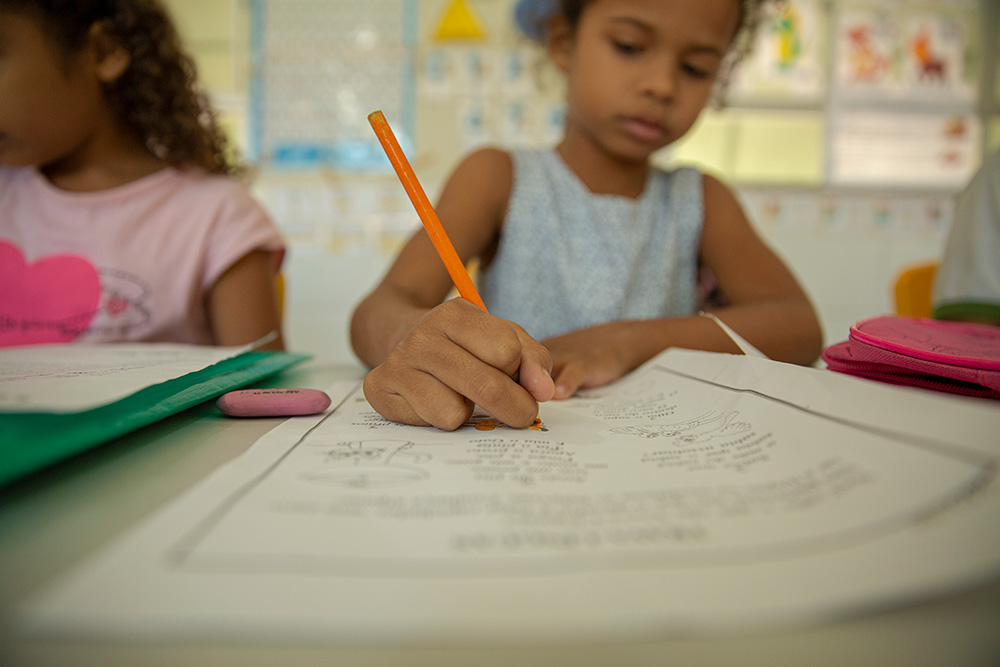
Supports State Departments of Education in developing didactic material and training teachers, school administrators, and pedagogical coordinators.

In 2022, partner organizations expanded their work with governments committed to student learning outcomes through the following programs: Educar pra Valer, Collaborative Literacy Program (PARC), Impulsionar, Formar, and Plantar Educação, spanning the nation with coverage in 22 states.
We also inaugurated the first year of a strategy that puts adolescents at the center of their learning process. And MegaEdu supported our efforts on school connectivity to offer high-quality personalized learning solutions to more schools more quickly. The number of adequate internet connections in public schools for pedagogical use increased from 25,000 to 47,000—an 88% increase.
Ethnic-racial snapshot in the applied assessments. The snapshot serves to generate data for designing more effective strategies to reduce inequalities.
Municipal and state networks with support for developing anti-racist training strategies for teachers and for the production of didactic materials focused on racial equity.
Black and Indigenous students prioritized in learning-recovery actions.
Data from PARC’s eight-state Reading Fluency Assessment (2022) shows that around 49% of 2nd grade students in public schools supported by the program have achieved adequate literacy levels.
The good news is that post-pandemic literacy recovery appears to be rapid. When we look at partner states that were part of the 2019, 2021, and 2022 Assessments, only 23.4% of children had adequate reading levels at the height of the pandemic in 2021, a noticeable difference compared to 40.3% in 2019. In 2022, the index in those same two states was 40.36%. PARC’s participating education networks recovered their pre-pandemic literacy levels with just one year of in-person classes.
The program has also gained momentum and traction. With Rio Grande do Sul (RS) beginning PARC, 12 states collaborated with their municipalities throughout 2022 and developed or continued their literacy policies. Seven of those states, Amapá (AP), Espírito Santo (ES), Goiás (GO), Sergipe (SE), Mato Grosso do Sul (MS), Pernambuco (PE), and Piauí (PI), have seen a direct positive impact on classrooms such as teacher training, assessments, and teaching materials focused on literacy.

Supports State Departments of Education in developing didactic material and training teachers, school administrators, and pedagogical coordinators.
